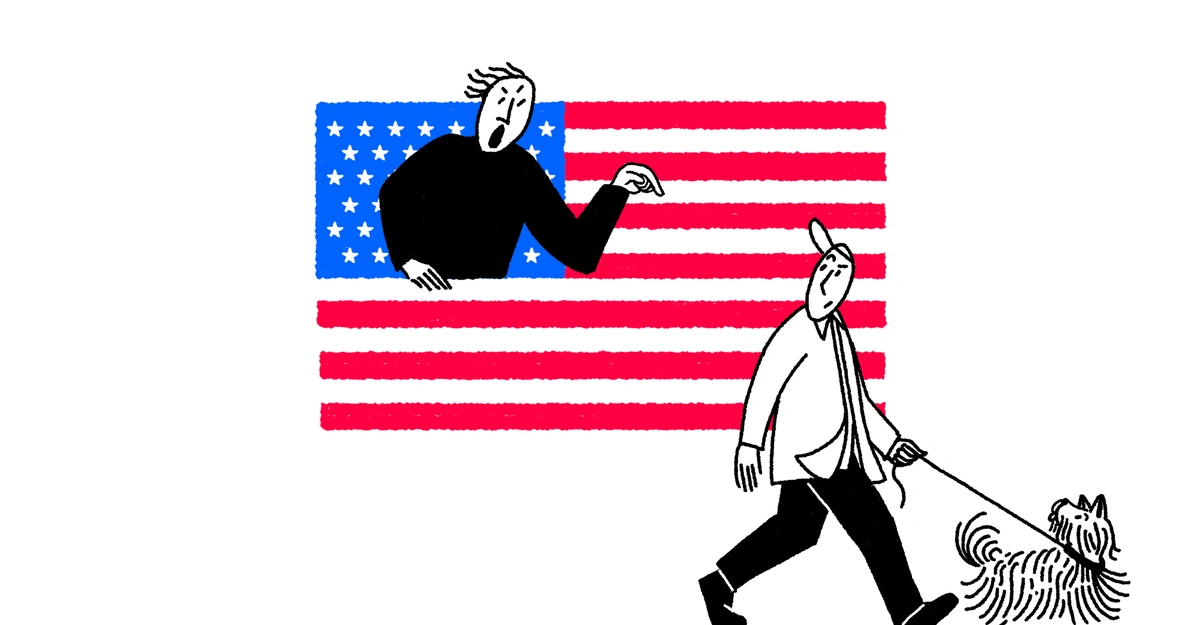Copyright The Atlantic

If there’s one belief that unites Americans across the political spectrum, it’s that other countries are the reason we can’t have nice things. “We sent $250 billion to Ukraine,” the late conservative activist Charlie Kirk wrote on X in January. “And yet we can’t get water to fight fires in California.” In 2023, Assemblyman (and now New York City Mayor-Elect) Zohran Mamdani told an audience at a Democratic Socialists of America conference that “we have to make clear that when the boot of the NYPD is on your neck, it’s been laced by the IDF,” referring to the Israeli army. “Housing and insurance across the board are extremely high, and becoming out of reach for many,” Republican Representative Marjorie Taylor Greene posted in July. “We do not want to give or sell weapons to Ukraine or be involved in any foreign wars or continue the never ending flow of foreign aid.” Some progressive activists have gone so far as to blame federal assistance to Israel for local budget cuts to New York City libraries. For many Americans and their elected officials, foreign actors—whether Ukrainian, Israeli, or Chinese—are parasites who stand in the way of prosperity or otherwise corrupt the country. And to be fair, America’s international posture, under this administration and the previous ones, certainly leaves much to critique. But when lashing out becomes a substitute for looking inward, such criticism devolves into conspiracism: a way to pin domestic problems on outsiders so as to avoid reckoning with their real causes at home. This rhetorical move may generate applause from partisans, but it’s self-defeating, because societies that externalize their internal issues will fail to fix them. Take the wildfires in Los Angeles earlier this year. At the time, Kirk and other conservatives implied that the failure to prevent the devastation and deal with its aftermath was partly the result of America sending aid to Ukraine. But the facts told a different story. As one of wealthiest and highest-taxed states in the country, and the fifth-largest economy in the world, California had the resources to address the perils posed by wildfires. Local authorities just failed to adequately prepare for a sadly predictable emergency. Any effort to avert a similar catastrophe in the future needs to reckon with this reality, not divert the debate to activities overseas. Indeed, setting aside entirely the merits of U.S. support for Ukraine or Israel, those outlays are a rounding error in the American budget. Both countries could disappear tomorrow and America’s health-care situation, education system, law-enforcement challenges, and disaster preparedness would remain the same, because America’s predicament is the consequence of American political choices, not sinister foreigners hoodwinking the masses. Similarly, Mamdani’s suggestion that racialized police brutality perpetrated in America (established 1776) by the NYPD (established 1845) stems from Israel (established 1948) is an offense against not just U.S. history but also basic causality. Sourcing such violence to a handful of police exchange trips to Israel for counterterrorism training isn’t just factually wrong—it ensures that the actual drivers of the violence go unaddressed and conveniently offloads a long-standing American pathology onto outsiders. When he becomes mayor in January, Mamdani may end the NYPD’s Israel trips, but he will be left with the same local problem. That’s because most American ills are of our own making: the result of political choices, trade-offs, and citizen preferences. Many people struggle to find affordable housing because of constraining policies in New York City, California, and other blue strongholds. At this moment, many Americans are facing the loss of their SNAP benefits because of decisions made at the federal level to shut down the government, defund its services, and prevent an emergency fund from offsetting the shortfall. The country doesn’t have Medicare for All because Americans are unwilling to pay the estimated $20 trillion it would cost per decade, not because of the approximately $500 billion we’ve sent to Ukraine and Israel over the course of those countries’ entire existence. Simply put, these situations prevail not because foreign actors defrauded America for the budgetary equivalent of pocket change, but because of policy choices made democratically here at home, for good and for ill. America’s new wave of populist politicians are right to highlight the failings of the country’s elite, both here and abroad. But if they resort to exporting blame for America’s shortfalls in housing, health care, and other areas, rather than taking a hard look within, they will have only quack cures to treat very real ailments.



